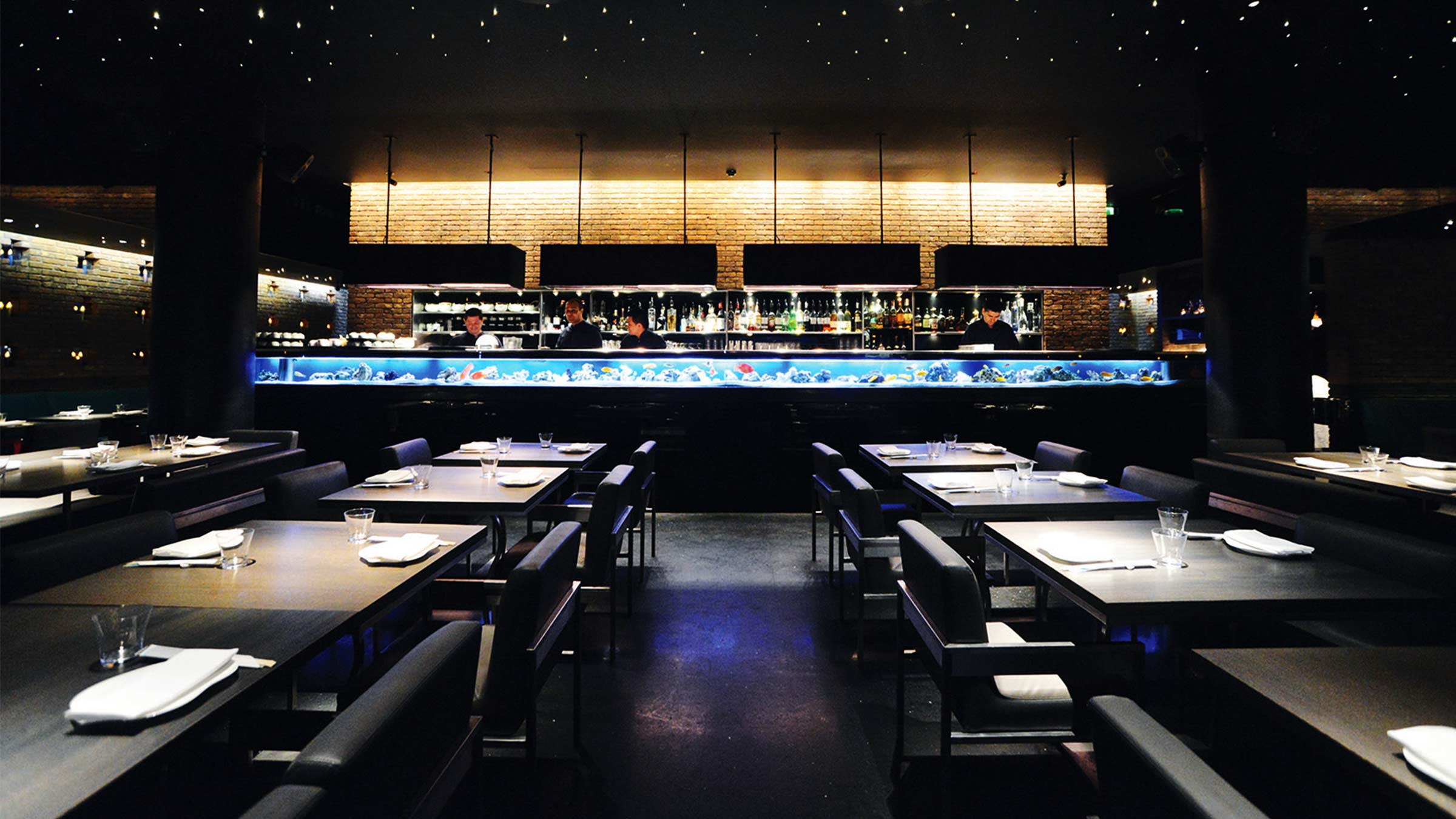It felt like something had changed when Michelin released its 2016 guide to the best UK restaurants last month. For as long as I’ve been in London, the criticism you hear time and time again is that the guide is too skewed towards traditional Old World-style fine dining. As it has in the last few years, that continued to improve. But there’s more to it than just the cuisine. This year I think it reflects a deeper change in the way consumers choose to dine today.
Top restaurants not only need to deliver exquisite food and faultless service; they also need to deliver an experience. Last year, 19-cover Kitchen Table – an upmarket backdrop to the Bubbledogs concept – was awarded a Michelin star. Ultra-exclusivity is epitomised, however, by this year’s two-star recipient: The Akari. With just nine covers, and a set menu so rigid that dietary requirements are simply not tolerated, The Akari proves that the intimate experience of chef’s table dining – and scarcity of availability – continues to build hype.
Another experientially focused newcomer is last year’s Shoreditch star-winner, The Clove Club, which in May became the first UK restaurant to implement the pre-paid ticketing system Tock.
Pioneered by Nick Kokonas – co-owner of Chicago’s highly regarded Alinea – Tock is designed to protect restaurants from the ever-present peril of no-shows.
Of course, the ticketing system is a clever solution to the perennial industry problem of last-minute cancellations, something that can prove tricky. As Clove Club-founder Isaac McHale said himself, “it’s going to ruffle a few feathers.” What both Isaac and Nick are keen to stress is that the introduction of ticketing likens the dining experience to the theatrical; guests are buying an experience, not simply a meal. What Isaac vehemently denies Clove Club will be doing is surge pricing. This makes something of a statement given Token’s main competitor, Open Table, has recently announced its intention to do precisely that.
These developments beg the question of how far the rarefied qualities of Michelin-starred dining can innovate relevantly within the sector. Systems like Tock and moves to surge pricing only work when the demand is high and the experience unique.
On the other hand, chefs and restaurant groups continue to attempt a strategy that seems to fly in the face of exclusivity and rarity: expansion. To me, maintaining Michelin-level quality yet daring to expand seems like the ultimate business challenge, and an increasing number of restaurateurs are daring to attempt it. In recent years, I have been watching the ambitious expansion and dauntingly high quality aspiration of the development of the Hakkasan Group with interest. The business has successfully developed its world-renowned (and Michelin-starred) flagship restaurant to a further ten locations worldwide, bagging a few more Michelin stars along the way.
Wary, perhaps, of overstretching the limits of a single brand the group have also experimented with other ventures, still headed by executive head chef Tong Chee Hwee. In London, Yauatcha – opened in 2004 – is also Michelin starred, as is the more recent HKK, opened in 2013. Pairing coveted and exclusive quality with expansion is, of course, not without its perils. In 2013 the group closed their Japanese fine dining venture Chrysan after just six months of operation. Hakkasan Group is fascinating because despite having an exclusive fine dining concept as its drawcard, it also manifests a thirst for diversity and global growth .
So, what can the endeavours of Hakkasan’s drive to go global tell us? Well, it seems that despite the obvious appeal of quirkier concepts like Kitchen Table and The Araki, consumer desire for a brand they can trust can also be a viable model even at the highest echelons.
Will we be seeing more fine dining models like Hakkasan’s in the future? Or will experiential concepts always win out? Let me know your thoughts at moira@thembsgroup.co.uk and have a wonderful weekend.









